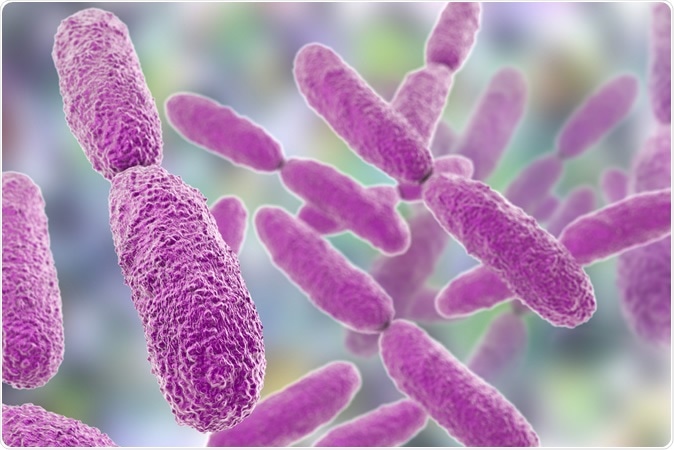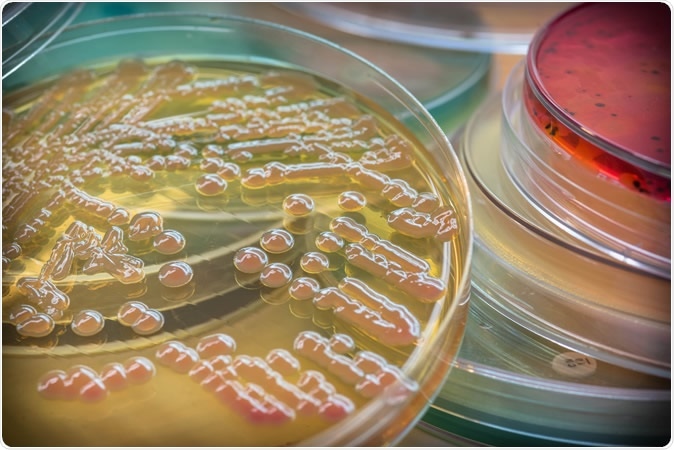A powerful superbug, a hypervirulent form of the bacteria Klebsiella pneumoniae, is a very difficult to curb infection. It causes a variety of infections including rare but life-threatening liver, respiratory tract, bloodstream and other infections.
Antibiotic resistance has been dubbed a global health problem, with a rising number of cases. As time passes by, the easy-to-cure infections in the past have become resistant to many antibiotics, making treatment hard. Antibiotic resistance is one of the biggest threats to global health, and it happens due to the misuse of antibiotics in humans. Often, it can lead to longer hospital stays, increased mortality, and higher medical costs.
Now, new hope emerges as a team of scientists at Washington University School of Medicine unveils a novel vaccine against antibiotic-resistant Klebsiella pneumoniae.

The study, which was published in Proceedings of the National Academy of Sciences of the United States of America (PNAS), shows how the team produced and tested a vaccine to protect against the antibiotic-resistant Klebsiella pneumoniae in mice. They were able to make the vaccine by manipulating a harmless form of Escherichia coli.
“For a long time, Klebsiella was primarily an issue in the hospital setting, so even though drug resistance was a real problem in treating these infections, the impact on the public was limited,” Dr. David A. Rosen, assistant professor of pediatrics and molecular microbiology at Washington University, said.
“But now we’re seeing Klebsiella strains that are virulent enough to cause death or severe disease in healthy people in the community. And in the past five years, the really resistant bugs and the really virulent bugs have begun to merge, so we’re beginning to see drug-resistant, hypervirulent strains. And that’s very scary,” he added.
The novel vaccine’s efficacy
The researchers wanted to create a vaccine against the two most common strains of Klebsiella, which affect most people who are immunocompromised. The outer surface of the bacteria is coated with sugars. To combat this, the team designed a glycoconjucate vaccine containing these sugars mixed with a protein that can make the vaccine more potent.
“Here, we show that bioconjugate vaccines targeting the capsule of hvKp can provide immunity and protection against extremely lethal hvKp strains. Further, we demonstrate that bioconjugation is a promising technology for rapid development of efficacious vaccines against emerging bacterial threats,” the researchers wrote in the study.
Glycoconjugate vaccines are more effective. However, past vaccines of this kind involved many chemical syntheses, making the process tedious and expensive. In the study, they made sure that they use an engineered E. coli to perform the synthesis. By genetically engineering the bacterium, they were able to convert it into small biological factories, producing the protein and sugars required for the vaccine. Moreover, they utilized another protein enzyme to connect the proteins and sugars.
To test the efficacy of the new vaccine, the team administered three doses of the vaccine or a placebo to 20 mice at two-week intervals. About 80 percent of the mice that received the placebo had died when they were infected with the K1 type while 30 percent of those infected with K2 had died. On the contrary, of the mice that received the vaccine, 80 percent infected with the K1 and all of those infected with K2 survived.
“We are very happy with how effective this vaccine was. We’re working on scaling up production and optimizing the protocol so we can be ready to take the vaccine into clinical trials soon,” Mario Feldman, PhD, an associate professor of molecular microbiology at Washington University, said.
Klebsiella pneumoniae in a view
Klebsiella pneumoniae is an encapsulated, gram-negative bacterium of the Enterobacteriaceae family, known as an opportunistic pathogen causing nosocomial infections in health care settings.
Recently, the appearance of a hypervirulent form of the bacteria is alarming, with many cases emerging worldwide. Though a majority of K. pneumonia infections are seen in the hospital setting or immunosuppressed people, some cases of a highly invasive, community-acquired K. pneumonia infections, called hypervirulent K. pneumoniae are steadily soaring in frequency.
First observed in the 1980s in Taiwan, hypervirulent K. pneumoniae (hvKp) infections usually present as community-acquired infections causing a liver abscess.
Feldman, M., Mayer Bridwell, A., Scott, N., Vinogradov, E., McKee, S., Chavez, S., Twentyman, J., Stallings, C., Rosen, D., and Harding, C. (2019). A promising bioconjugate vaccine against hypervirulent Klebsiella pneumoniae. Proceedings of the National Academy of Sciences of the United States of America (PNAS). https://www.pnas.org/content/early/2019/08/26/1907833116
